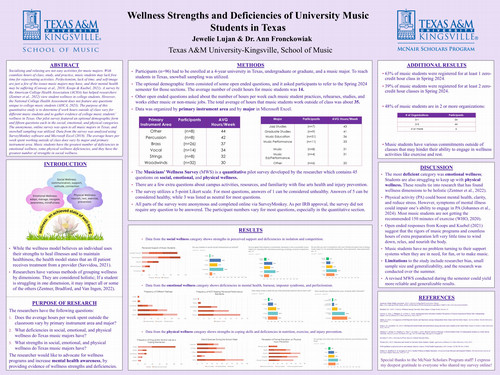Taking time to relax and wind down is not an easy task for music students. With countless hours of class, study, and practice, music students may not have free time for rejuvenating activities. Perfectionism, lack of time, and self-image are just a few of the issues music majors may have, and their mental health may be suffering (Conway et al., 2010; Koops & Kuebel, 2021). A survey by the American College Health Association (ACHA) has helped researchers (Zentner et al., 2022) view student wellness in college students. However, the National College Health Assessment does not feature any questions unique to college music students (AHCA, 2023). This quantitative study determines if work hours outside of class vary for different groups of music students. Work hours refer to extra time commitments like individual practice, time completing homework or studying, sectionals, and music and non-music jobs. Our pilot survey featured an optional demographic form and fifteen questions each in the social, emotional, and physical categories. The anonymous, online survey was open to all music majors in Texas, and snowball sampling was utilized. Data from the survey was analyzed using Survey Monkey software and Microsoft Excel (2018). The average hours per week spent working outside of class could be as low as 20 and as high as 43, when sorted by major. For the primary instrument area, the average hours per week ranges from 30 to 44. Music students have the greatest number of deficiencies in emotional wellness, and they have the greatest number of strengths in social wellness.
Faculty Mentor: Dr. Ann Fronckowiak
School of Music


